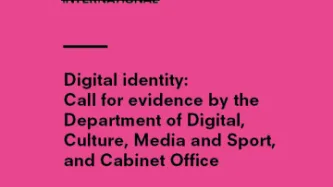Search
Content type: Examples
Immunity passports are likely to increase discrimination and threaten fairness and public health - and won't work for practical reasons. First and foremost, scientists do not yet know whether infection confers immunity or for how long; the serological tests so far developed are insufficiently reliable; the volume of testing required is not feasible; and no country has enough survivors of COVID-19 to boost its economy. There are also numerous ethical objections.
Writer: Natalie Kofler and…
Content type: Examples
In Colombia, Peru, and Panama, quarantine regulations assign men and women different days to go out. For transgender people, these gender-based restrictions mean discrimination and violence for law enforcement and others, leading to numerous complaints. In Bogota, where law enforcement has been instructed not to demand ID to prove gender and trans people are allowed to choose their day, one trans woman was stabbed by a man who said she was out on the wrong day, and another was blocked from…
Content type: Examples
In one of its pandemic-related emergency orders, the Canadian province of Ontario has extended to police officers, First Nations constables, special constables, and municipal by-law enforcement officers the power to require those facing charges under the emergency laws to give their name, date of birth, and address or face fines of up to C$750 for non-compliance.
Source: https://toronto.ctvnews.ca/those-violating-ontario-s-emergency-orders-must-id-themselves-or-face-steep-fine-1.4877062…
Content type: Examples
NHS England is using Yoti's digital ID card solution to verify health care workers' identity; the cards are added to staff phones, enbaling them to use a contactless ID app to prove their identity both online and offline. Yoti is providing the system for free for three months to all public health organisations, emergency services, and community initiatives working to contain the pandemic.
Source: https://www.biometricupdate.com/202004/uk-national-health-service-rolls-out-yotis-biometric-…
Content type: Examples
In Haiti, the National Identification Office has been extremely crowded, despite the government requirement to avoid gatherings of more than 10 people. The cards, which include a photo, name, date of birth, and registry number, are required for bank transactions and other official purposes.
Source: https://www.voanews.com/science-health/coronavirus-outbreak/haitians-seeking-national-id-cards-say-government-violating-its
Writer: Sandra Lemaire and Matiado Vilme
Publication: VOA News
Content type: Examples
Ghana's opposition party, the National Democratic Congress, has blamed a spike in cases of COVID-19 on the National Identification Authority's refusal to suspend its registration efforts in the country's Eastern Region even though two citizens filed for a court injunction to halt the operation and even though the conditions violated the country's social distancing directives. Registrants were forced to share fingerprint scanners and wait in overcrowded conditions. Public pressure later forced…
Content type: Examples
An Accra High Court has ruled that the National Identification Authority can continue registering Ghanaians after two citizens filed a case arguing that continued registration violates the social distancing directive issued by president Akufo-Addo. However, a different division of the High Court granted a similar injunction filed by a group of 30 citizens, in force for ten days beginning on March 23.
Source: https://www.modernghana.com/news/992060/continue-with-your-ghana-card-registration-…
Content type: Examples
To help the UK's Department for Work and Pensions handle the more than half a million applications the department received in the last two weeks of March, the identity verification company Nomidio, a subsidiary of Post-Quantum, is offering its service free of charge. The service would enable a simple, server-based three-step verification process through a smartphone to help first-time users prove their identity.
Source: https://www.biometricupdate.com/202003/free-palm-and-face-biometrics-…
Content type: Examples
British biometric start-ups are helping the UK government create digital passports.
VST Enterprises is providing a biometrics-backed digital health care passport, V-COVID, to help critical NHS and emergency services workers get back to work; the passport will incorporate test results and be included in an app that can be scanned from two meters away. In combination, Patchwork Health, which provides NHS trusts with a digital platform and Truu, which provides a digital staff passport,…
Content type: Examples
Filipino president Rodrigo Duterte has exempted survey teams and National ID system registrars from lockdown rules on the basis that they are essential to providing cash distributions and other government responses intended to soften the impact of the community quarantine. Duterte argued that the acknowledged delays to the government's programme to assist low-income families derived from discrepancies in the lists of beneficiaries caused by relying on the 2015 census and that the implementation…
Content type: Examples
The Jamaican Government intends to fast-track creating and implementing a national ID system and give every Jamaican citizen a unique identifier in order to help it distribute aid and benefits needed in response to the COVID-19 pandemic. The government intends the system to be similar to others such as India's Aadhaar and incorporate biometric scans of either fingerprint or retina. It believes the system could also help formalise some professions such as taxi drivers and bartenders that are…
Content type: Examples
Biometrics companies are offering free services to essential businesses, remote workforces, and government agencies administering benefits claims during the coronavirus pandemic. Among them are Redrock Biometrics, which is waiving its licence fee for palm print recognition for essential businesses; Daon, which is offering free access to its multi-factor biometrics-based authentication platform, "IdentityX", to all new customers; PrivyID is offering a month of free digital signature service to…
Content type: Examples
Prime Minister Andrew Holness told the House of representatives that efforts to combat Covid-19 would be “greatly assisted” by a mandatory biometric national ID system. The national identification system, NIDS, would require everyone to register and be linked to an individual’s unique biometric. The system has been highly controversial, and was subject to a challenge last year brought by oppossiton leader Julian Robinson in Jamaica’s Supreme Court, which ruled it violated the right to privacy…
Content type: Examples
As part of its efforts to facilitate a transition out of lockdown, researchers at Germany's Helmholtz Centre for Infection Research, are planning to introduce "immunity certificates" for those who pass an antibody test to show they have had and recovered from the virus and are ready to re-enter the workforce. The intention is to test 100,000 people at a time and use the information so gathered to plan the transition.
Sources:
https://www.telegraph.co.uk/news/2020/03/29/germany-will-issue-…
Content type: Advocacy
Privacy International welcomed the opportunity to contribute to the consultation on the Principles on Identification for Sustainable Development. Valuable lessons have been learnt, particularly in the last few years, on the serious consequences of identity systems. We have seen challenges in court that have found that key provisions of these systems are incompatible with the right to privacy enshrined in constitutions. We have seen civil society organisations highlighting the serious risks…
Content type: Case Study
In Peru, you get asked for your fingerprint and your ID constantly - when you’re getting a new phone line installed or depositing money in your bank account – and every Peruvian person has an ID card, and is included in the National Registry of Identity – a huge database designed to prove that everyone is who they say they are. After all, you can change your name, but not your fingerprint.
However, in 2019 the National Police of Peru uncovered a criminal operation that was doing just that:…
Content type: News & Analysis
Unlikely as it may seem, the UN institution that has one of the greatest potential to impact upon people’s rights around the world is now the UN Statistics Division. And why is that?
Last week, they had a crucial meeting where they endorsed the UN’s Legal Identity Agenda and the UN’s Legal Identity Task Force. The stakes could hardly be higher. One of the UN’s Sustainable Development Goals, SDG 16.9, states that “by 2030 provide legal identity for all including free birth…
Content type: Advocacy
TEDIC, InternetLab, Derechos Digitales, la Fundación Karisma, Dejusticia, la Asociación por los Derechos Civiles y Privacy International acogen el llamado de la Relatoría Especial sobre Derechos Económicos, Sociales, Culturales y Ambientales (DESCA) de la Comisión Interamericana de Derechos Humanos (CIDH) de enviar información para la elaboración del Informe Anual sobre DESCA del año 2019, que se presentará ante la Organización de los Estados Americanos (OEA) en 2020.
El objeto de este…
Content type: Advocacy
TEDIC, InternetLab, Derechos Digitales, Fundación Karisma, Dejusticia, Asociación por los Derechos Civiles and Privacy International welcome the call made by the Special Rapporteurship on Economic, Social, Cultural and Environmental Rights (ESCER) of the Inter-American Commission on Human Rights (IACHR) to inform the preparation of the Annual Report of the ESCER for the year 2019, which will be presented to the Organization of American States (OAS) during 2020.
This submission aims to outline…
Content type: Long Read
It was a quiet evening in Agadez, a bustling Saharan city in the centre of Niger. Thirty-five year old Agali Ahmed was sipping tea at a friend’s place, as he often did, when he received a message: police were at his uncle’s house. When he got there, Ahmed saw men in plainclothes, standing around the building’s gate. Inside, more men were searching the apartment. Three white men, who Ahmed guessed were Spanish, asked for his phone and started taking pictures of him. They told him to follow them…
Content type: Long Read
[Photo credit: Images Money]
The global counter-terrorism agenda is driven by a group of powerful governments and industry with a vested political and economic interest in pushing for security solutions that increasingly rely on surveillance technologies at the expenses of human rights.
To facilitate the adoption of these measures, a plethora of bodies, groups and networks of governments and other interested private stakeholders develop norms, standards and ‘good practices’ which often end up…
Content type: Long Read
Photo by Nadine Shaabana on Unsplash
Digital identity providers
Around the world, we are seeing the growth of digital IDs, and companies looking to offer ways for people to prove their identity online and off. The UK is no exception; indeed, the trade body for the UK tech industry is calling for the development of a “digital identity ecosystem”, with private companies providing a key role. Having a role for private companies in this sector is not necessarily a problem: after all, …
Content type: Long Read
Photo: Francesco Bellina
Driven by the need to never again allow organised mass murder of the type inflicted during the Second World War, the European Union has brought its citizens unprecedented levels of peace underpinned by fundamental rights and freedoms.
It plays an instrumental role in protecting people’s privacy around the world; its data protection regulation sets the bar globally, while its courts have been at the forefront of challenges to unlawful government surveillance…
Content type: Advocacy
The UK government's Department for Digital, Culture, Media and Sport, along with Government Digital Services, made a Call for Evidence on Digital Identity.
In our response, Privacy International reiterated the need for a digital identity system to have a clear purpose, in this case to enable people to prove their identity online to access services. We highlighted the dangers of some forms of ID (like relying on a centralised database, unique ID numbers, or the use of biometrics). The…
Content type: News & Analysis
The Irish Data Protection Commissioner has made a ruling on the controversial Public Services Card (PSC) that has described much of what is is done with the card as unlawful. The PSC has proven controversial: introduced in 2012 for welfare claimants, it's use expanded to more and more uses, including its use to get a driving licence or passport. Now, following campaigns from civil liberties organisations, this expansion of use has now been found to be unlawful by Ireland's Data Protection…
Content type: Examples
In February 2019 Gemalto announced it would supply the Uganda Police Force with its Cogent Automated Biometric Identification System and LiveScan technology in order to improve crime-solving. LiveScan enables police to capture biometric data alongside mugshots and biographical data. CABIS speeds up the biometric matching process by mapping distinctive characteristics in fingerprints, palm prints, and facial images. The Ugandan police will also pilot Gemalto's Mobile Biometric Identification…
Content type: Examples
In November 2018, Italy's Data Protection Authority advised against a proposal from the country's Interior Minister, Matteo Salvini, to replace "parent 1 and parent 2" on children's national ID cards with "mother and father". Salvini, who campaigned for election earlier in 2018 on a socially conservative platform, also called for gender-specific terms throughout the application and for applications submitted on behalf of under-14s to include permission from both parents. The DPA argued that the…
Content type: Examples
In October 2018, the answers to a FOIA request filed by the Project on Government Oversight revealed that in June 2018 Amazon pitched its Rekognition facial recognition system to US Immigration and Customs Enforcement officials as a way to help them target or identify immigrants. Amazon has also marketed Rekognition to police departments, and it is used by officers in Oregon and Florida even though tests have raised questions about its accuracy. Hundreds of Amazon workers protested by writing a…
Content type: Examples
As early as 2008, the Chinese telecommunications giant ZTE began helping Venezuela develop a system similar to the identity system used in China to track social, political, and economic behaviour. By 2018, Venezuela was rolling out its "carnet de la patria", a smart-card "fatherland" ID card that was being increasingly linked to the government-subsidised health, food, and other social programmes most Venezuelans relied on for survival. In 2017, Venezuela hired ZTE to build a comprehensive…











